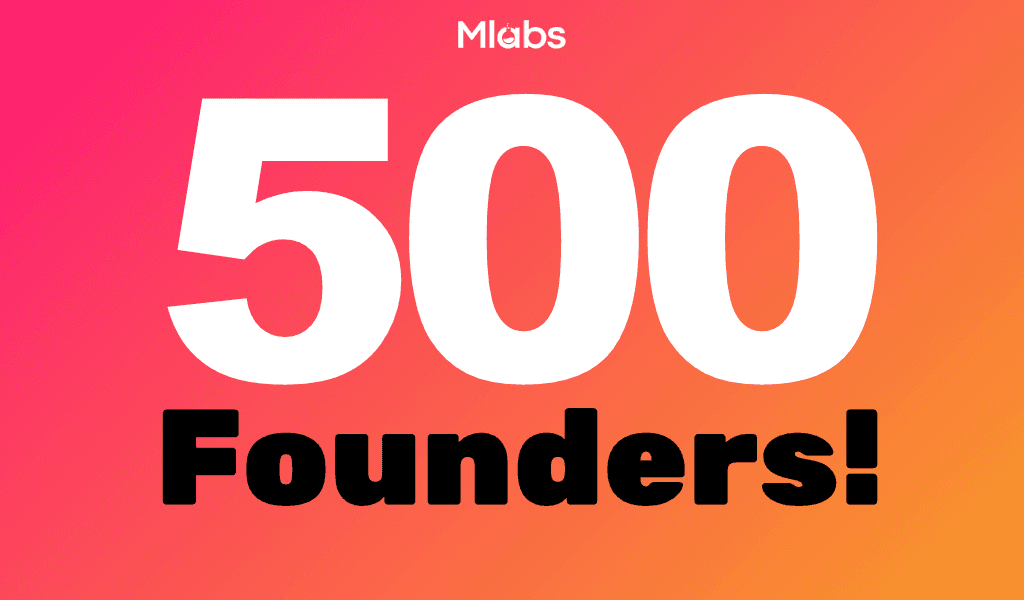
Simon Jenner
Wednesday 7 April 2021

Over the past eighteen months we have launched 500 startups with no-code. It’ feels like a good time to summarise the top six questions I get asked and to give you our considered a
Posted in:
No-Code
Over the past eighteen months we have launched 500 startups with no-code. It’ feels like a good time to summarise the top six questions I get asked and to give you our considered answers!
1) What is no-code?
No-code tools allow you to build an application , or automate a process, by configuring settings rather than writing code. This allows anyone, whatever their technical skill level, to build and launch a digital business.
2) Can I build my [insert application here] with no-code?
It’s easier to say what you can’t do with no-code than what you can. Creating most computer games still requires code, film and image editing does too. Finally anything that requires ultra fast processing, like high frequency trading, is probably best coded. Other than that, we’ve almost certainly built it with no-code.
3) What platform should I use?
If you want a jack-of-all-trades that you won’t outgrow, use Bubble. If your project is predominantly a database use Airtable (perhaps use Prory or Softr as a front end). If you’re building a simple e-commerce site use Shopify. If your building a website use Webflow. If it’s a simple landing page try Carrd . Finally if it’s just a mobile app Adalo is great.
Caveat! We have used about 300 no-code tools this year! So there are tons of alternatives!
4)Will my app be able to scale with my business?
Yes. We have clients running substantial regulated financial services businesses built on no-code platforms.
Often founders are concerned that they won’t own their IP or will not be able to “extract their code” from a no-code platform. Worrying about needing to replace your no-code application as your business grows is a distraction. Almost every business renews its tech as it starts to scale coded or not. However, no-code improves your chances of getting to scale as you can iterate and pivot at much, MUCH lower costs.
5) What will is cost to build my MVP?
First of all, most minimum viable products that we see developed are far greater in scope than they need to be. Therefore, they average at about 100 hours to develop. An MVP that focussed on the core of the thesis that underpins a business case / value proposition takes a handful of hours to build.
As for cost... the best no-coders we work with charge more than $150 per hour. At the bottom end of the market freelancers are charging as little as $15 per hour.
A true no-code MVP is self built and should cost you less than $1,000. The most expensive MVP we built in 2020 cost $108,000.
6) Are investors “turned off” by No-Code?
No. Most investors want to see proof of concept, traction, a value proposition and a business model that works. It’s wayyyyy easier to prove that with no-code than it is with code.
All the things you hear about needing a tech co-founder, the importance of owning your code and tech stack etc. is a hangover from investment entities that haven’t caught up yet.
Don’t worry though, things are changing fast. Two years ago we had to answer these six questions every time we mentioned no-code and now the COO of the UK’s most venerable pension fund is proud to be a no-coder. It won’t take long for everyone else to catch up.
1) What is no-code?
No-code tools allow you to build an application , or automate a process, by configuring settings rather than writing code. This allows anyone, whatever their technical skill level, to build and launch a digital business.
2) Can I build my [insert application here] with no-code?
It’s easier to say what you can’t do with no-code than what you can. Creating most computer games still requires code, film and image editing does too. Finally anything that requires ultra fast processing, like high frequency trading, is probably best coded. Other than that, we’ve almost certainly built it with no-code.
3) What platform should I use?
If you want a jack-of-all-trades that you won’t outgrow, use Bubble. If your project is predominantly a database use Airtable (perhaps use Prory or Softr as a front end). If you’re building a simple e-commerce site use Shopify. If your building a website use Webflow. If it’s a simple landing page try Carrd . Finally if it’s just a mobile app Adalo is great.
Caveat! We have used about 300 no-code tools this year! So there are tons of alternatives!
4)Will my app be able to scale with my business?
Yes. We have clients running substantial regulated financial services businesses built on no-code platforms.
Often founders are concerned that they won’t own their IP or will not be able to “extract their code” from a no-code platform. Worrying about needing to replace your no-code application as your business grows is a distraction. Almost every business renews its tech as it starts to scale coded or not. However, no-code improves your chances of getting to scale as you can iterate and pivot at much, MUCH lower costs.
5) What will is cost to build my MVP?
First of all, most minimum viable products that we see developed are far greater in scope than they need to be. Therefore, they average at about 100 hours to develop. An MVP that focussed on the core of the thesis that underpins a business case / value proposition takes a handful of hours to build.
As for cost... the best no-coders we work with charge more than $150 per hour. At the bottom end of the market freelancers are charging as little as $15 per hour.
A true no-code MVP is self built and should cost you less than $1,000. The most expensive MVP we built in 2020 cost $108,000.
6) Are investors “turned off” by No-Code?
No. Most investors want to see proof of concept, traction, a value proposition and a business model that works. It’s wayyyyy easier to prove that with no-code than it is with code.
All the things you hear about needing a tech co-founder, the importance of owning your code and tech stack etc. is a hangover from investment entities that haven’t caught up yet.
Don’t worry though, things are changing fast. Two years ago we had to answer these six questions every time we mentioned no-code and now the COO of the UK’s most venerable pension fund is proud to be a no-coder. It won’t take long for everyone else to catch up.
Ready to launch your startup idea with an MVP?
Download our step by step guide for non-technical founders to create a startup Minimum Viable Product (MVP)
Get the eBook

